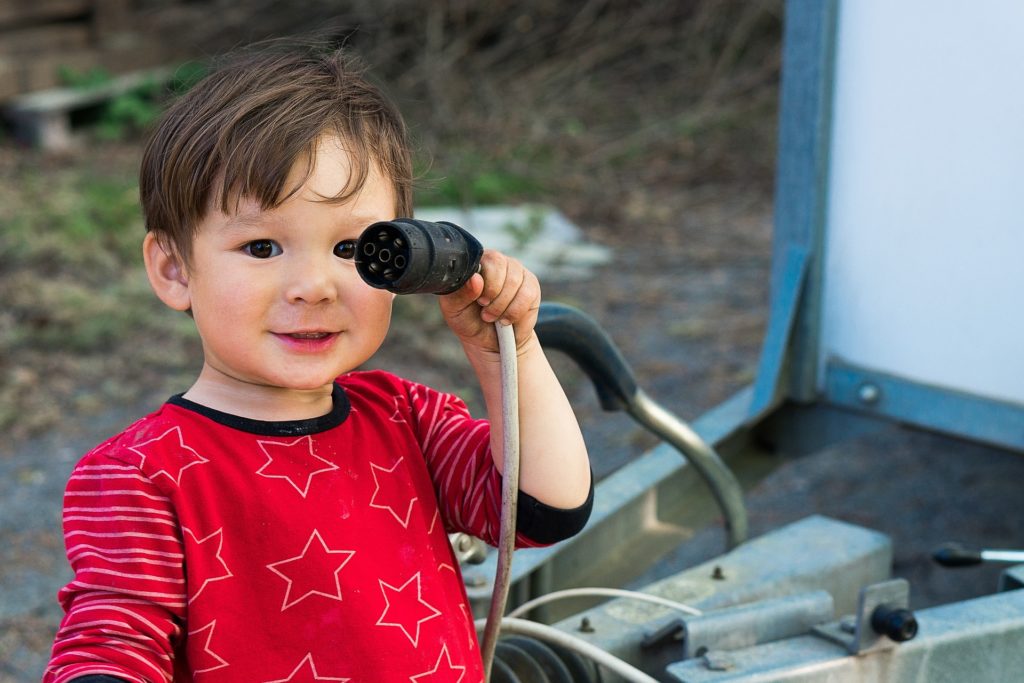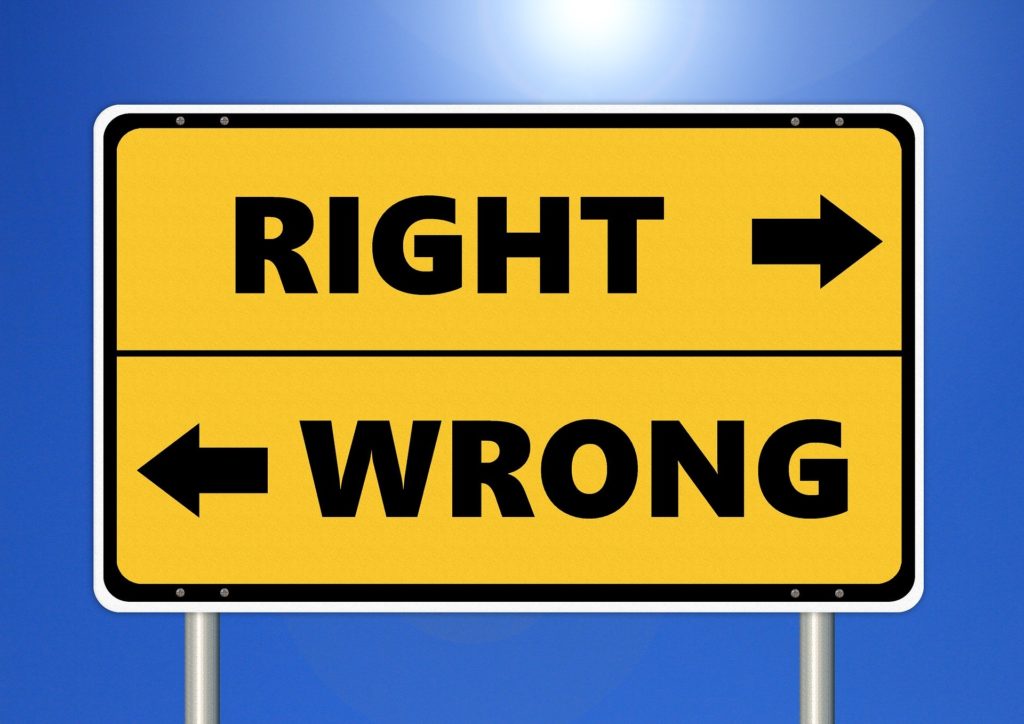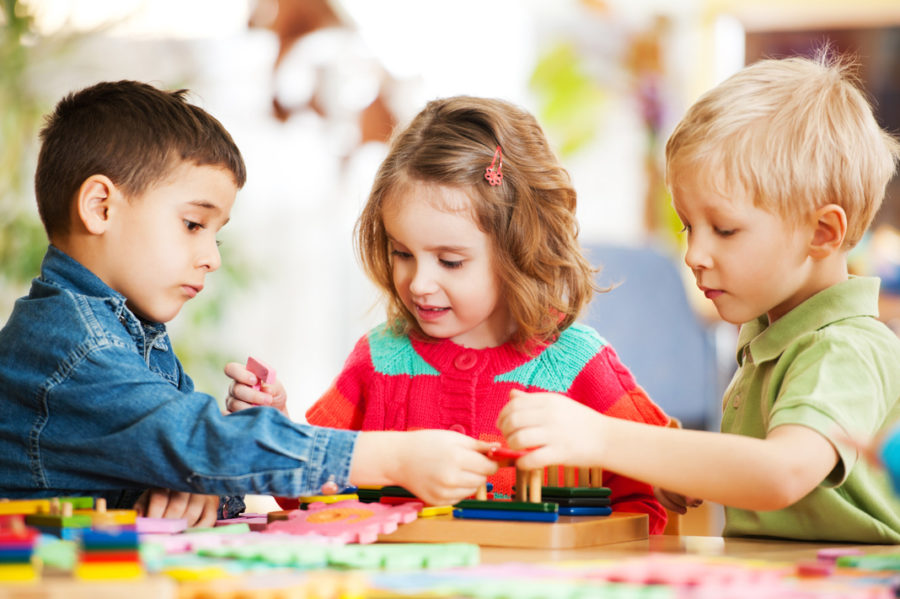Morals are all that teachers and parents should teach children. It’s important to tell children what is right and what is wrong. The perception of morality and its sense of right and wrong depends on the setting in which they develop, as well as on their mental, cognitive, physical, and social ability. Read on to know about the various phases of stages of moral development in children and how you can teach children basic values.
What Is Morality?
Morality is the capacity to perceive the difference between motives, feelings, acts, and behavior between right and wrong. The primary aim of parenting is to impart this idea to children. Moral development deals with the moral values a child learns from childhood to adulthood.
Read on to learn about the various phases of moral development in children.

Stages Of Moral Development In Children
Children’s moral development occurs steadily as they develop from childhood to adolescence and later. Let’s look in-depth at this:
1. Infants
Infants at this age don’t have the moralizing ability. Their definition of right and wrong comes from what they feel secure, to what they don’t. It’s important to remember that the baby never was alone in the womb, never starving, and in constant contact with the mother. If in the real world this does not happen, the child perceives this as something ‘false.’ That is what instinctively feels good for the infant to be fed, hugged, and cuddled.
2. Toddlers
Age: 2 to 3 years
Your kid knows at this point that people have rights and needs, too. He has yet to understand, however, the distinction between right and wrong. A 2-3-year-old can display empathy-based guilt and moral behavior. The Toddler knows that conformity is the rule based on the behavior expressed by adults.
- Your kid knows it’s unethical to steal a gift away from a sibling simply so he might get himself in trouble.
- While he does not realize that it’s bad to hurt someone, he understands he will be disciplined for doing so.
- Your baby tenderly follows the rules to escape punishment.
3. Preschoolers
Age: 3 to 5 years
This is the age at which your child internalizes family beliefs.
- Since rules and norms are necessary for family discipline, they also become vital for your child.
- Your kid needs to take care of the older people, or parents.
- They recognize a “child” and an “adult” role and expect maturity to be aimed at them.
- The kid knows that acts have consequences – “If I do this, this will happen.”
- Strong parental advice makes the child connected and performs well.
- The unconnected kid can do as he wants, until and unless he gets caught.
4. Kids
Age: 7-10
At age 7, children tend to doubt whether the individuals who occupy positions of power, such as teachers and parents, are infallible.
- Your child will develop a strong understanding of what he ought and ought not to do.
- They’d like to be included in rules-making.
- Children of this era build a sense of justice and appreciate the need for rules.
- They realize that children still have rights and they philter rules depending on what suits them.
5. Teens
Age: 11-16
- Your teenager will extend his moral scope and see rules as a series of social guidelines that will help everyone.
- They respect rules but negotiate too.
- When they develop their logical thinking skills, they become involved in what is right for the world at large.
- Your teenager will begin to understand that the action he makes has an influence on those around him.
- Your teen may want to be embraced by peers and will modify or adjust his or her beliefs and principles that affect it further.
- The loop goes from “I do this because I think it’s right” to “I do this because it’s done for my dad” to “I do this because it’s right.”
Moral development is not as straightforward as explaining children’s principles. That researchers have come up with ideas on them is so confusing.

Images Source – Pixabay
Freud’s Concept of Moral Development
Freud’s conception of moral development is based on his spirit, ego, and superego philosophy. In these ideas, he suggested that there are contradictions between the individual’s interests and those of society in general.
The Id is connected to the self-preserving portion of the mind which is only involved in obtaining oneself. The superego, though, emerges from the moral center and is more interested in the good in humanity.
Freud was of the view that if the child should move from I d to super-go, a child might have accomplished moral development with social values in mind.
Piaget’s View on Moral Development
Piaget drew comparisons between a child’s growth of intelligence and morals. He said the morality of a child is better established through contact with communities and sensitivity to decision-making. At a very young age, the actions of the infant are shaped by how an event affects him. Regulations are of immense significance at this period and they are viewed as things that can not be modified. Through the academic maturation of the boy, he starts to recognize the need to research the motif and not just the implications.
Skinner’s Concept of Moral Development
Skinner emphasized the notion that the world in which the infant develops or is mostly exposed sets the basis for the morals of the infant. This is how parents’ and guardians’ actions and attitudes are and how the child’s moral status is shaped.
How To Teach Moral Values To Children
The basic values that you educate them about is not easy to help kids understand and internalize. Some tips to do this are given here:
- Explain the morals you consider to be highly relevant.
- Teach your child how misbehavior influences and impacts others as well. For instance:”No-one will believe you one day if you lie.”
- Discuss imaginary scenarios with your kids, where they have to evaluate their feelings and make a decision. Let’s say, “Your friend gets insulted, what are you going to do?
- Teach that positive behavior has positive results.
- Making sure you, as a parent, uphold your promises and responsibilities, and show your child goodness.
- Have an example, or you will be confused.
- Let your child involved in such activities of moral development.
Moral development in children is a vital part of its development and can continue to drive children in the right way. It is crucial for you to take the opportunity to help your children learn and internalize healthy and moral values right from their childhood.
Also Read: Stages of Cognitive Development in Kids













